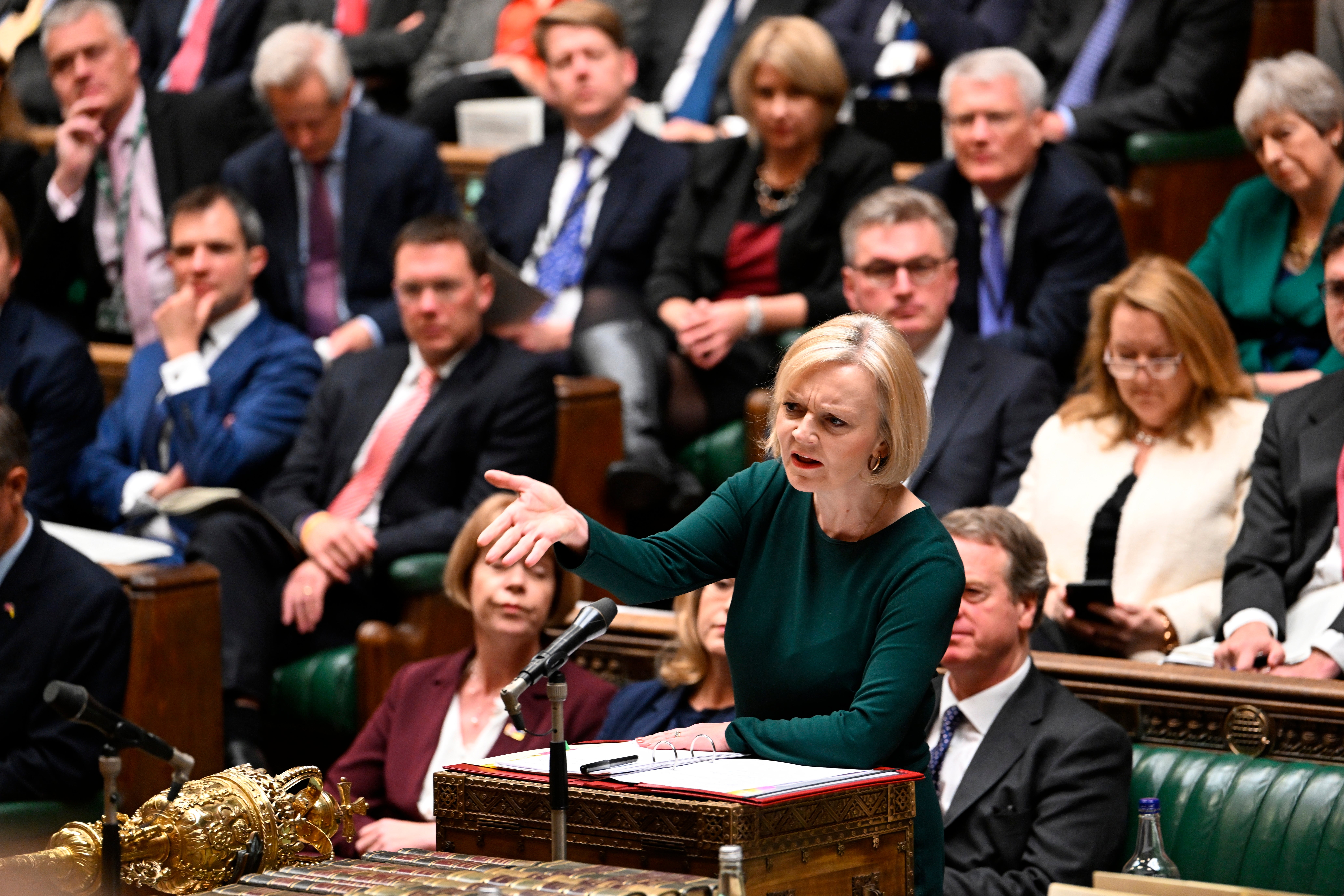UK leader Truss under pressure to ditch economic plan
A senior member of the British government has rejected suggestions that Prime Minister Liz Truss should step down after lawmakers from her own party criticized Truss for economic policies that have sparked turmoil on financial markets

Your support helps us to tell the story
From reproductive rights to climate change to Big Tech, The Independent is on the ground when the story is developing. Whether it's investigating the financials of Elon Musk's pro-Trump PAC or producing our latest documentary, 'The A Word', which shines a light on the American women fighting for reproductive rights, we know how important it is to parse out the facts from the messaging.
At such a critical moment in US history, we need reporters on the ground. Your donation allows us to keep sending journalists to speak to both sides of the story.
The Independent is trusted by Americans across the entire political spectrum. And unlike many other quality news outlets, we choose not to lock Americans out of our reporting and analysis with paywalls. We believe quality journalism should be available to everyone, paid for by those who can afford it.
Your support makes all the difference.A senior member of the U.K. government on Thursday rejected suggestions that Prime Minister Liz Truss should step down after lawmakers from her own party criticized Truss for economic policies that have sparked turmoil on financial markets.
During a stormy, private meeting with Conservative Party lawmakers on Wednesday evening, Truss was blasted for pursuing an economic growth strategy that benefits the wealthy at the expense of the working class voters who handed the party a landslide victory in 2019.
Truss has “trashed the last 10 years of workers’ Conservatism,” British media quoted Robert Halfon, chairman of the House of Commons Education Committee, as saying during the session.
Truss is under pressure after her plan for 45 billion pounds ($50 billion) of unfunded tax cuts triggered steep declines in the pound and government bonds. Investors are concerned the plan may lead to unsustainable borrowing because the government hasn’t provided analysis on how it will affect debt levels.
“I think that changing the leadership would be a disastrously bad idea, not just politically but also economically,” Foreign Secretary James Cleverly said in an interview with the BBC. “And we are absolutely going to stay focused on growing the economy.”
Cleverly reiterated the government’s argument that the proposed tax cuts will stimulate economic growth, which will in turn generate increased tax revenue to pay for public services.
Under pressure to stabilize financial markets, Treasury chief Kwasi Kwarteng said earlier this week that he would release further details on the government’s economic plan and its impact on public finances by the end of this month. That’s three weeks earlier than previously planned.